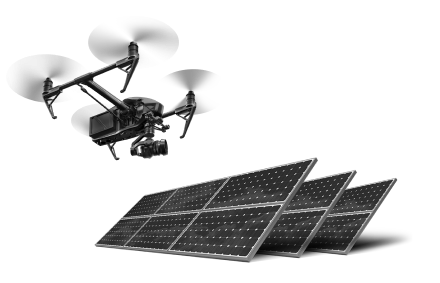How to Manage Industrial Waste Smart: Real-Life Examples

The global industrial sector produces 7.6 billion tons of waste annually. The task of disposing of such volumes is often high-dollar, unsafe, and tricky. Annually, it costs about $9 trillion to recycle industrial waste. But failing to manage it may result in environmental damage, fines, and financial losses.
Yet, technological advancements bring not only new challenges, they step in with innovative solutions capable of meeting those challenges. Fortunately, IoT is ahead of the curve in transforming industrial waste management.
IoT solutions make waste collection and recycling much more efficient. They are able to optimize and automate the waste management process. For businesses, it means less trash produced and less money spent.
Let’s consider how smart management of waste works in transportation, food, agriculture, and energy sectors.
Table of Contents
Defining Industrial Waste
Industrial waste is hazardous, unwanted, or residual materials generated by industrial processes. It comes in three main types: solid, toxic and chemical, and secondary. Solid waste is an absolute winner in total volume.
.jpg?width=880&name=Pic%201%20(2).jpg)
Even though up to 75% of industrial waste is recyclable, only 30% is actually recycled worldwide. The main problem lies in costs

For companies, recycling is another expense added into operational overhead, lowering the chance of it actually happening. However, IoT can greatly facilitate proper waste utilization and does it at a much lower cost. IoT implementation also helps optimize production so industries are able to generate less waste in general.
Handling Industrial Waste with IoT
The advantage of using IoT solutions is the possibility to collect a vast amount of data in real time. Sensors generate data and send them to the cloud. There, AI interprets the data, and provides users with actionable insights based on that data.
Smart Waste Management in Transportation
Wastes in the transport industry are generated by freight fleet and their maintenance. Many of these wastes are toxic. Utilizing this waste in compliance with environmental regulations is a must. But it's better to avoid it to cut expensive disposal costs. Also, warehousing activities generate paper, pallets, and packaging materials. All that is much easier to reuse or recycle. But many companies still don’t do so. Those who fail to manage their waste, face legal liability, financial, and reputational losses.
To reduce the amount of packaging waste, companies may install connected IP video cameras on waste dumpsites. This would help watch waste inflow and inform staff for proactive decision-making. Businesses may also deploy sensors to check the state of waste management equipment. Based on the images, they can predict and schedule equipment maintenance.
Real-Life Example: Scheduling Equipment Maintenance
Waste Management, Inc. is a Texas-based waste management company. They create novel environmental solutions. The company not only helps businesses manage their waste, they also make it less harmful to the environment. For instance, one of their customers from Arizona deployed smart sensors in its fleet. The sensors transmit maintenance and operating data to a central software platform. Using the platform, managers schedule maintenance activities. This results in reduced amounts of waste and costly downtime for the company.
Benefits
Transportation companies utilizing IoT in their waste management activities, say they have reduced their:
- Risk in the workplace
- Carbon footprint
- Storage and disposal costs
Smart Waste Management in Food Industry
Around 1.3 billion tons of food is wasted each year throughout the food production, and sale. This makes up one-third of all the food produced for consumption. When poorly handled, food waste finds its way into local landfills with costly pickup routes.
For businesses, it means inefficient use of budgets, landfill taxes, and fees. To avoid it, companies may utilize IoT suites combining smart sensors, apps, GPS systems, and user portals. This helps streamline waste storage and collection processes. Sensors notify the management system when the container reaches a predetermined capacity. Thus, organizations better schedule their pick-ups and optimize routes.
Composting can reduce waste service bills and methane emissions. As most food waste can be composted, companies may track the level of decay in their organic waste dumpsters using pH sensors.
Real-Life Example: Tracking Recycling Activities
Enevo created an IoT suite to measure, analyze, and manage waste. Their sensor technology for containers works with analytics software. It manages containers and fleets, as well as plans collection routes. Food companies across the US and Europe, using the solution, admit they managed to reduce their waste-related operational costs and increase sustainability.
In 2018, the company partnered with McDonald's. Together, they managed to reduce costs by 12% and increase recycling by 50%. Enevo installed sensors in the restaurant’s bins at all seven locations across Nottingham to track recycling diversion and reduce waste inefficiencies. Now McDonald’s is able to track their recycling rates and understands more about what happens to their waste when it leaves the restaurants.
Benefits
Smart waste management enables businesses in the food industry to:
- Optimize truck trips
- Lower carbon emissions
- Save money
- Improve public image

Smart Waste Management in Agriculture
About 998 million tons of agricultural waste is produced yearly. That's because almost all agricultural activities, from planting to bagging, generate byproducts. Agro-waste consists of animal waste, food waste, crop waste, and hazardous agricultural waste.
The biggest concern with agricultural waste is the pollution of groundwaters with pesticides. Waste produced by transporters, millers, and baggers contributes to the problem.
IoT plays a crucial role in addressing these problems. The technology helps reduce waste generation and promote proper waste disposal on farms. Additionally, by leveraging drones, companies check soil nutrient levels. With that, they know how much or how little fertilizer needed to support plant growth. IoT also helps track all stages of the growing cycle to apply fertilizer at the needed stage and amount. This leads to less run-offs.
Farming bins, equipped with sensors and actuators, turn human-led processes into automated ones. The technology measures the fill levels in bins and containers several times a day. After that, the data is processed in the cloud, and farmers get data on the fill state of the bins. Considering that data, they decide whether to empty the bins. It helps them optimize waste collection routes, vehicle loads, and bin distribution. The result is at least 30% lower costs for waste collection and up to 60% less carbon emission.
Real-Life Example: Smart Route Planning
A US-based farming company Northerly Farms uses smart technology to grow grains. To support sustainability mission, Northerly utilizes tech for recycling and combating waste. Above all, the company focuses on managing fertilizer byproducts, pesticides and herbicides. Drones monitor pesticides accumulated in the soil. They also help check the soil nutrient level. With that data, Northerly always knows exactly how to enrich the soil. With IoT, Northerly managed to reduce waste, maximize field productivity and resource utilization, and gained an economic profit.
Benefits
When agricultural companies use IoT for waste management, they:
- Gain greater efficiency
- Go greener and more sustainable
- Cut costs
- Refine recycling
Smart Waste Management in the Energy Industry
Energy businesses are leveraging IoT to minimize the impact on the environment and cut down operational costs. Since the sector is shifting from fossil-based energy production to renewable sources, its waste is changing as well. Waste from the use of renewable sources includes steel, paper, copper, glass, and others. Many of these materials can be recycled and reused. And IoT is a great helper here. Ultrasonic sensors installed on sorting lines help distinguish between recyclable and non-recyclable materials. This helps engineers reintroduce some materials into the production cycle.
Real-Life Example: Automated Sorting
A Greek energy company Protergia utilizes sensor-based recycling solutions to sort their waste. The company separates valuable resources out of waste streams. Sensors recognize the target material on the basis of typical material characteristics. Sorting their run-offs, Protergia combats the worsening resource crisis. The company reports they achieved optimized resource recovery, minimized waste, and saved costs.
Benefits
Smart waste management helps energy companies:
- Manage waste sorting
- Decrease carbon footprint
- Create a cleaner and safer working environment
- Have waste sorted with 99% accuracy
- Reduce collection cost
- Optimize waste collection and management processes
Afterword
Improper handling of industrial waste can have devastating consequences on the environment. Also, it leads to legal ramifications, lost revenue, and fines. And that’s where IoT can make things better. Our team will tap our tech skills to help you save money, keep your reputation, and go greener.
More articles on the topic






